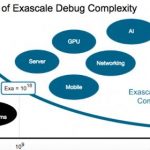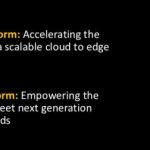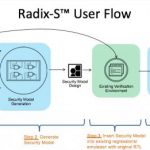One of the great pleasures in what I do is to work with people who are working with people in some of the hottest design areas today. A second-level indirect to be sure but that gives me the luxury of taking a broad view. A recent discussion I had with Kurt Shuler (VP Marketing at Arteris IP) is in this class. As a conscientious marketing… Read More
Tag: bernard murphy
Synopsys Tackles Debug for Giga-Runs on Giga-Designs
I think Synopsys would agree that they were not an early entrant to the emulation game, but once they really got moving, they’ve been working hard to catch up and even overtake in some areas. A recent webinar highlighted work they have been doing to overcome a common challenge in this area. Being able to boot a billion-gate design, … Read More
Arm Deliver Their Next Step in Infrastructure
Arm announced their Neoverse plans not long ago at TechCon 2018. Neoverse is a brand, launched by Arm, to provide the foundations for cloud to edge infrastructure in support of their vision of a trillion edge devices. To a cynic this might sound like marketing hype. Sure, they’re widely used in communications infrastructure and… Read More
Mentor Showcases Digital Twin Demo
Mentor put on a very interesting tutorial at DVCon this year. Commonly DVCon tutorials center around a single tool; less commonly (in my recent experience) they will detail a solution flow but still within the confines of chip or chip + software design. It is rare indeed to see presentations on a full system design including realistic… Read More
Can I Trust my Hardware Root of Trust?
Hardware Roots of Trust (HRoTs) have become a popular mechanism to provide a foundational level of security in a cell-phone or IoT device or indeed any device that might appear to a hacker to be a juicy target. The concept is simple. In order to offer credible levels of security, any level in the stack has to be able to trust that levels… Read More
Safety: Big Opportunity, A Long and Hard Road
Safety, especially in road vehicles (cars, trucks, motorcycles, etc.), gets a lot of press these days. From the point of view of vendors near the bottom of the value chain it can seem that this just adds another item to the list of product requirements; as long as you have that covered, everything else remains pretty much the same in… Read More
The Best Way to Keep a Secret
Anyone knows that the best way to keep a secret is never to share it with anyone. Which works fine for your own most personal secrets, but it’s not very useful when you have to share with at least one other, such as in cyber-security. One such need, of enormous importance in the IoT, is authentication; are you who you claim to be? Seas of… Read More
Data Center Optimization Through Game Theory
I always enjoy surprising synergies so I was immediately attracted to a Research Highlight in the Communications of the ACM this month, on a game-theoretic method to balance discretionary speed-ups (known as computational sprints) in data centers. If you don’t have an ACM membership and want to dig deeper, I include an open link… Read More
Machine Learning and Gödel
Scanning ACM tech news recently, I came across a piece that spoke to my inner nerd; I hope it will appeal to some of you also. The discovery will have no impact on markets or investments or probably anyone outside theories of machine learning. Its appeal is simply in the beauty of connecting a profound but obscure corner of mathematical… Read More
Why High-End ML Hardware Goes Custom
In a hand-waving way it’s easy to answer why any hardware goes custom (ASIC): faster, lower power, more opportunity for differentiation, sometimes cost though price isn’t always a primary factor. But I wanted to do a bit better than hand-waving, especially because these ML hardware architectures can become pretty exotic, so … Read More











